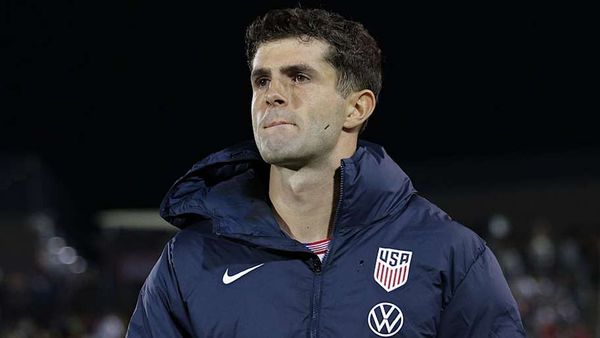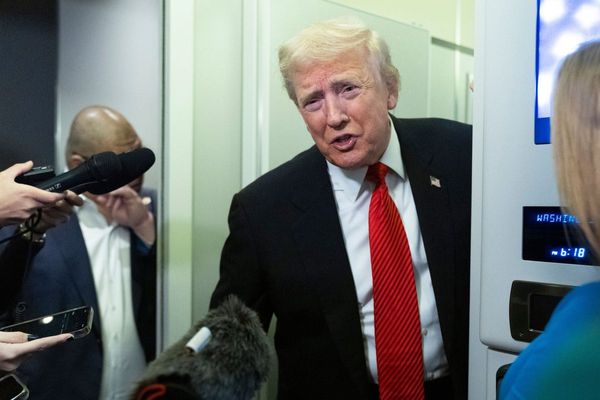
Jennifer Lawrence has said she no longer feels it appropriate to speak out against the Trump administration, lest she exacerbate unhelpful debate and further divisions.
“I don’t really know if I should,” said Lawrence in an interview with the New York Times. “During the first Trump administration, I felt like I was running around like a chicken with my head cut off. But as we’ve learned, election after election, celebrities do not make a difference whatsoever on who people vote for.
“So then what am I doing? I’m just sharing my opinion on something that’s going to add fuel to a fire that’s ripping the country apart.”
Lawrence has previously been open about voting for both right and leftwing candidates for the presidency. Raised by conservative Republicans in Kentucky, she voted for John McCain in 2008 before joining the Democratic party and saying she realised during Obama’s administration that voting Republican was voting against her own rights as a woman.
In 2015, she said Donald Trump’s election to the White House would be “the end of the world” and endorsed Joe Biden in the 2020 election. In 2024, she lent her support to Kamala Harris, “because I think she’s an amazing candidate and I know that she will do whatever she can to protect reproductive rights”.
Lawrence was joined by most of Hollywood in her rejection of Donald Trump as a candidate for re-election, but the lack of leverage stars have over the voting intentions of the public was highlighted by Trump’s victory.
“The second term feels different,” said Lawrence of Trump’s presidency. “Because he said what he was going to do. We knew what he did for four years. He was very clear. And that’s what we chose.”
Lawrence is promoting Die, My Love, Lynne Ramsay’s drama in which she plays a new mother who struggles with her mental health in rural Montana. Speaking at a press conference for the film in Venice, Lawrence said of Israel’s bombings in Gaza: “I’m terrified. It’s mortifying. What’s happening is no less than a genocide and it’s terrible.”
She continued by saying that she was saddened by “the disrespect in the discourse of American politics right now and how that is going to be normalised to the kids right now. It’s going to be normal to them that politicians lie.”
Lawrence sought to redirect anger about the conflict to decision-makers rather than actors and artists. “Stay focused on who is responsible,” she said, in what many took to be a reference to the then-recent pledge signed by more than 4,000 entertainment industry figures to boycott Israeli film institutions.
The actor, who won an Oscar aged 22 for her role in Silver Linings Playbook, is attracting awards attention for her performance in Die, My Love. Although Ramsay has rejected the story being interpreted as one of postpartum depression and psychosis, Lawrence said that she did relate to elements of her character’s journey after the birth of her second son, soon after shooting ended.
“It was fear about my child,” she said, “just picturing every worst-case scenario, and then doubting everything that I was doing. I was already in therapy, but I got on a drug called Zurzuvae and I took it for two weeks and it really helped.”
The actor also spoke to the New York Times of the liberating necessity of completing nude scenes in the film while she was some months pregnant and unable to exercise.
“It feels nice,” she said, of being forced to cast off vanity. “I mean, I do have moments where I’m like, What technically are the differences between me and a prostitute? But it doesn’t keep me up at night.”







